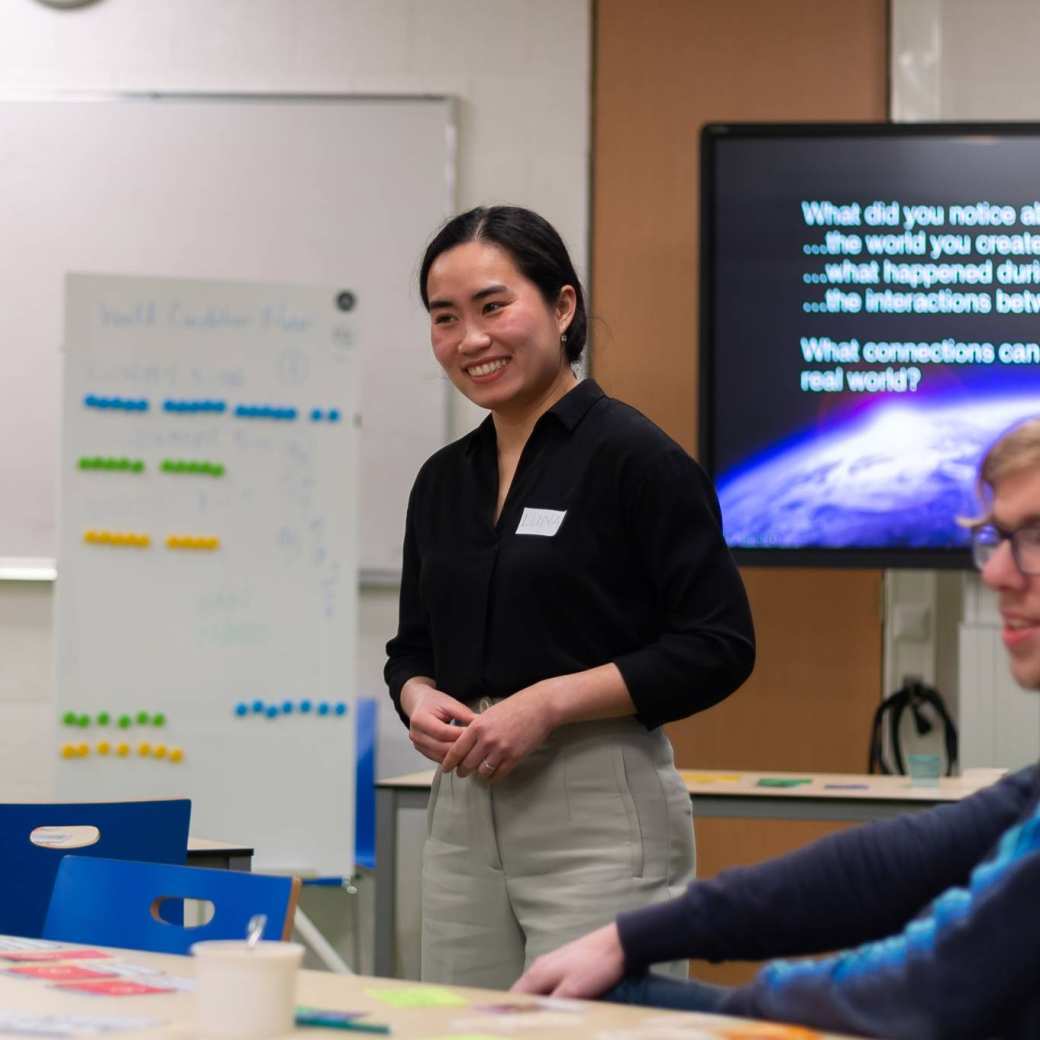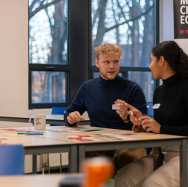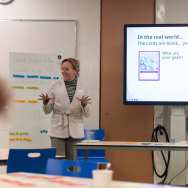An intercultural collaboration towards meeting the Sustainable Development Goals
We live in a time where the global community is confronted with different societal, environmental and economical issues. To fight the global issues of humanity, we need to change the way we think and work. Intercultural collaboration has proven itself crucial to reach the Sustainable Development Goals. This concept has been explored through a masterclass from the Master Circular Economy during the Week of Circular Economy 2023.

Masterclass
The 2030 SDGs Game is a card-based, multiplayer game that is played in-person that allows for a simulation that takes the "real world" towards the year 2030. The game was designed in Japan in 2016 and is based on the Sustainable Development Goals (SDGs). Participants have to collaborate in this game and their task is to figure out what is needed to improve sustainability in the world based on the 2030 SDGs while being occupied with their individual interests, perspectives and goals.
During the entire afternoon, the room was filled with enthusiastic participants. They had to think critically: of their tasks in the game and of each other. An inevitable situation, as it was a diverse group with different cultural experiences, nationalities and bachelor backgrounds. This mirrors the setting of the English-taught and international Master program.
A host with impact
Part of the successful participation within this game was because of the certified game master and PhD candidate in Supply Chain Management at Erasmus University, Linh Thùy (Luna) Nguyễn. She explained the principles of the 17 Sustainable Development Goals and how they are all connected to each other, and to this world. Linh Thùy did an amazing job in keeping both the participants and audience keen and sharp on the game and in turn, guided the group to a moment of reflection. She was truly inspiring, and her intrinsic motivation was contagious.

Time for reflection
In the end, it is not about being the fastest or the smartest, it is about being able to work together, to support each other and understanding that we are all connected. During the reflective part in the masterclass participants agreed that communication is key, and that you must hold yourself accountable for your choices. This reflects into the real world. “I was only focused on my individual goals, until another participant started involving me in the goals of other people. Eventually we all stood up from our seats and started working together. We became connected through our goals.” This was a reflection from one of the participants of the 2030 SDG game.
“You are not alone. This means that you don’t have to do it all by yourself, but it also means that everything you do, consequently, has an impact on another person.”
From SDGs to Master Circular Economy
The masterclass took place during the Week of Circular Economy and was organized to give students, who are considering doing this master in circular economy, an impression of what it will be like to study this program at the International School of Business. To be part of an international crowd and learn about collaboration in sustainability through game-based learning in this masterclass was a perfect example of one of the approaches that will be used in this new master program.
“This game explored the exact mindset that you need when we talk about the transition to a circular economy. We will keep exploring this mindset in the Master Circular Economy.”
Master Circular Economy
Are you interested in this international master’s program in circular economy? Get in touch with us! ISB.master-MCE@han.nl
More about the Master Circular Economy


